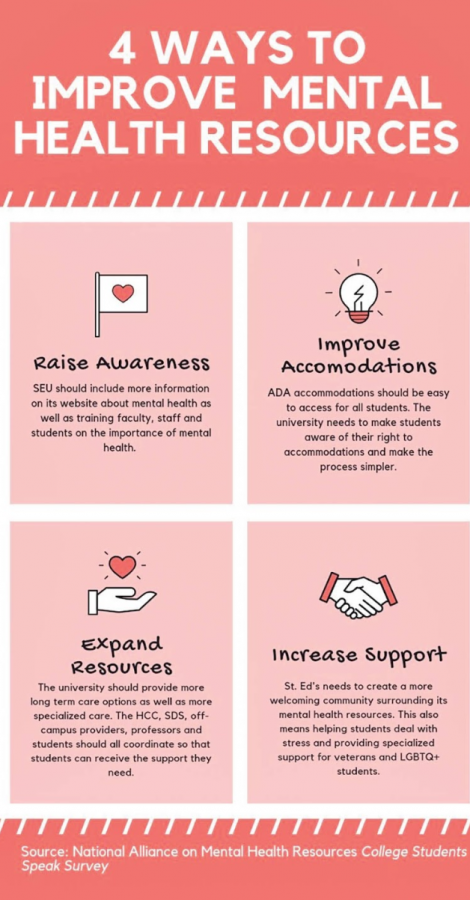Mental health resources aren’t sufficient in helping students
According to the Centers for Disease Control and Prevention, the second leading cause of death for people 10-34 years of age is suicide. Universities are becoming increasingly aware that mental health is a critical issue for many of their students, and St. Edward’s is no different. Despite efforts, the university’s Health and Counseling Center could do more to encourage students to seek help. The resources provided are not sufficient to keep the Hilltop healthy and thriving.
Despite suicide prevention hotlines and on-campus resources, 40% of college students fail to seek help for mental health problems. When students don’t receive the help they need, they suffer in their personal and academic lives. In fact, 64% of students who dropped out of college in 2012 did so due to mental health issues. Half of these students did not access resources on campus and 45% did not receive accommodations.
The HCC website could provide information about mental health and train faculty to recognize the signs that a student may be struggling. The process could involve less burdensome paperwork and fewer substanceless meetings before actual counseling begins.
Counseling services at the HCC include free group therapy sessions as well as six one-on-one sessions with a counselor. These options could help with a short-term crisis, but many students face problems that require long-term counseling, an option that, if offered on campus, could help students for whom transportation or off-campus therapy is too costly.
Many students come to the HCC to get accommodations under the Americans with Disabilities Act, a resource that can help them manage their mental health while keeping up with their classes. However, students who take advantage of this resource are faced yet again with confusing paperwork and appointments.
To document a psychological disability, Student Disability Services need a diagnosis from a medical professional, which requires another appointment with health services and a copay that has risen from $0 to $20 this year. These factors could discourage or even prevent students from seeking the accommodations they need.







